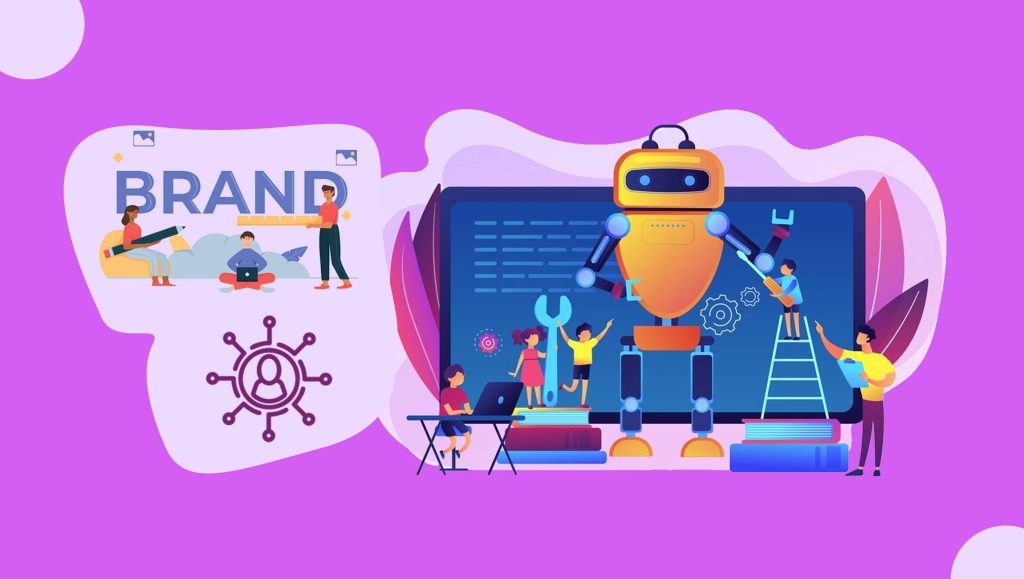The evolution of automation and artificial intelligence (AI) has transformed the way we interact with digital experiences. These technologies have become integral to delivering seamless and engaging digital experiences. This has been made possible through tools ranging from chatbots and virtual assistants to recommendation systems and personalized marketing.
In recent years, businesses have increasingly adopted automation and AI to streamline operations, reduce costs, and enhance customer experiences. AI-powered tools are now able to analyze vast amounts of data, identify patterns and insights, and make real-time decisions. Thereby enabling companies to respond faster to customer needs and market trends.
The evolution of automation and AI has also led to the development of new technologies. This includes Machine Learning (ML) and Natural Language Processing (NLP), which are making digital experiences highly intuitive and personalized. Here we will explore the evolution of automation and AI in digital experiences, from early chatbots to advanced machine learning algorithms. Let’s get started.
How are Automation and AI Building Better Digital Experiences?
Automation and AI have the potential to revolutionize digital experiences for businesses and customers alike. By leveraging these technologies, companies can provide personalized, efficient, and secure experiences that improve engagement, loyalty, and business outcomes.
Here are some ways in which these technologies can help build better digital experiences:
1. Personalization:
Automation and AI can enable businesses to provide personalized experiences tailored to individual customer preferences and behaviors. ML algorithms can analyze customer data and use it to recommend products or services, suggest content, and even personalize website interfaces. This will help deliver engaging and relevant experiences for customers.
2. Efficiency:
Automation can streamline processes and reduce manual effort, leading to faster response times and improved efficiency. For example, chatbots can handle routine customer queries and helpdesk tickets. Thereby, freeing up customer service agents to focus on more complex issues. This can result in faster resolution times and higher customer satisfaction rates.
3. Predictive Analytics:
Automation and AI can help businesses predict customer behavior, identify patterns and trends, and make data-driven decisions. For instance, predictive analytics can help businesses forecast demand, identify high-value customers, and optimize pricing strategies. This will ensure better business outcomes and highly accurate decision-making processes.
4. Improved Customer Engagement:
Automation and AI can help businesses engage with customers across multiple channels and touchpoints. For example, chatbots can interact with customers via messaging apps, social media, and voice assistants. This will provide customers with a seamless and consistent experience across channels, improving engagement and loyalty.
5. Enhanced Security:
Automation and AI can improve digital security by identifying potential threats and taking proactive measures to prevent them. For example, ML algorithms can detect fraudulent activity and flag suspicious transactions. This will help prevent financial losses and protect customer data resulting in improved trust and reputation for businesses.
Read More: SalesTechStar Interview with Cody Manning, Chief Sales Officer at Yooz
How Are Leading Brands Using Automation and AI to Drive Better Digital Experiences?
Leading brands across various industries are leveraging automation and AI to deliver better digital experiences to their customers. By leveraging these technologies, businesses can provide personalized, efficient, and engaging experiences that improve customer satisfaction, loyalty, and business outcomes. Here are five examples of how brands are using these technologies to improve their digital experiences:
1. Amazon:
Amazon’s recommendation engine is one of the best-known examples of AI-powered personalization. The engine uses customer data to suggest products and services that are most likely to be of interest to individual customers. This has led to increased sales and improved customer satisfaction. Even customers are reporting that they appreciate the customized recommendations.
2. Sephora:
Sephora, the cosmetics retailer, has integrated AI-powered chatbots into its digital experience. These chatbots can answer customer queries about products and provide recommendations based on customer preferences. This has resulted in faster response times and improved customer satisfaction rates.
3. Netflix:
Netflix uses AI-powered recommendation systems to suggest TV shows and movies to its users. The company’s algorithms analyze user viewing habits and make suggestions based on that data. This has resulted in improved customer engagement. Many of the users are reporting that they appreciate the individualized recommendations.
4. Starbucks:
Starbucks uses AI-powered predictive analytics to optimize its supply chain and store operations. The company’s algorithms analyze sales data, weather forecasts, and other variables to predict demand and adjust production accordingly. This has been yielding higher efficiency and reduced waste, resulting in cost savings for the company.
5. Spotify:
Spotify leverages AI-powered music recommendation systems to suggest songs and playlists to its users. The company’s algorithms analyze listening habits and make recommendations to users based on that data. This has led to improved customer engagement and increased user satisfaction.
The evolution of automation and AI has transformed the way businesses deliver digital experiences. From personalization and efficiency to predictive analytics and enhanced security, these technologies offer numerous benefits for businesses and customers alike. As these technologies continue to evolve, businesses that embrace automation and AI will be better positioned to deliver seamless and engaging digital experiences to drive customer engagement and business success.
Read More: Boosting Revenue through AI-Enhanced Sales Strategies





















